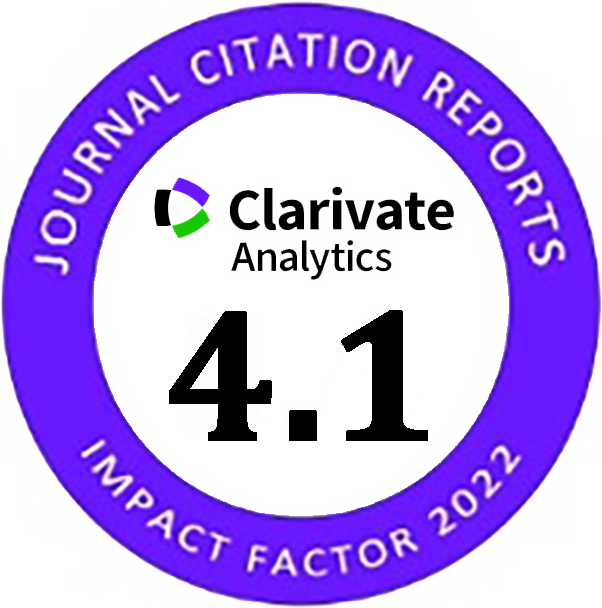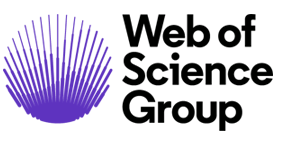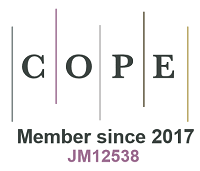Sustainable Solutions in the Hospitality Industry and Competitiveness Context of “Green Hotels”
Abstract
This interdisciplinary paper researches the importance of sustainable hotel engineering and organisation of facilities for the purposes of realisation of a sustainable and responsible hospitality facility business. Considered through the interdisciplinary aspect, at the same time, it represents a research goal with the focus on the segment of youth tourists, who, as existing consumers of low-budget expenditure, are turning into DINKY, as well as the segment of conscious adult consumers in the future. The paper, through a questionnaire, researches the perception of the importance of resource management, with the implementation of innovative technologies by youth tourists’ related attitudes and experiences. The methodology is based predominantly on qualitative research methods and includes analysis and conceptual methodology and survey research methods of youth tourists’ attitudes. The quantitative research was processed by using the statistical methodology combined with techniques of creative thinking formation. The results point to the predominance of importance in which over 90% of respondents confirm the importance of sustainable initiatives and resource management with the following rank: food, water, energy, and waste management. Further analysis implies an opposite attitude where only 52.9% of participants would be willing to pay higher prices for sustainable solutions in hotels. The results and recommendations contribute to knowledge and ideas by recognizing competitiveness of hotels, which design and engineer the business system and operations with support of sustainable technologies in an interdisciplinary way. The paper also contributes to the comprehension of combined and successfully communicated economic and marketing values of sustainable innovations supported by digital technologies.
Keywords
References
Novelli, Marina, ed. “Niche tourism: Contemporary issues, trends and cases.” Routledge, 2005.
Čerović, Slobodan, and Đorđe Čomić. “Projektovanje i izgradnja hotela.” Univerzitet Singidunum, Beograd, Srbija, (2011).
Dastbaz, Mohammad, and Ian Strange. “Building Sustainable Futures: An Ever Changing Policy Agenda.” Building Sustainable Futures (November 14, 2015): 3–13. doi:10.1007/978-3-319-19348-9_1.
Pearson, P. McBride, M. “Fighting Kitchen, Fighting Food Waste in Hotels”, WWF Initiative, (2017).
Bohdanowicz, Paulina, Angela Churie-Kallhauge, Ivo Martinac, and David Rezachek. "Energy-efficiency and conservation in hotels–towards sustainable tourism." 4th Simpósio Internacional em Arquitetura da Ásia e Pacífico, Havaí (2001).
Wong, Conrad T. C., Albert T. P. So, and Andrew Platten. “Building Low Carbon High Rise Buildings in a Sub-Tropical Climate: Case Study.” Building Sustainable Futures (November 14, 2015): 157–182. doi:10.1007/978-3-319-19348-9_7.
Walker, John R. "Introduction to hospitality", Pearsons Education Limited, (2019).
Jauhari, Vinnie, and Tanaya Verma. "Designing sustainable hotels: Technical and human aspects." Managing sustainability and tourism industry: Paradigms and directions for the future (2014): 1À40.
Thung, C, Voellm, D. J. "Hotel Architect Guide Asia Pacific", HSV Asia, Hong Kong, 2018.
Jović, Ž. H., and Hep Toplinarstvo. "Energetska učinkovitost u zgradarstvu – vodič za sudionike u projektiranju, gradnji, rekonstrukciji i održavanju zgrada." (2007): 40.
Bašić, Ivo. "Novi trendovi u funkciji povećanja konkurentnosti hrvatskog turizma u 21. stoljeću." Črnjar (ur.) Prostorno planiranje kao čimbenik razvoja u županijama, Rijeka: Zavod za prostorno uređenje Primorsko-goranske županije (2015): 407-416.
Weber, F., "Demand for Sustainable Tourism, in Corporate Sustainability and Responsibility in Tourism - a Transformative concept", Lund-Durlacher, D., Dinica V., Reiser, D., Fifka, M.S., Springer, (2019).
Guliani, L.K., Rizwan, S.A., "Corporate Social Responsibility in Hospitality and Tourism Industry", ATHSI Book Series, IGI Global, USA, (2016).
Ministry of environmental protection of Republic of Croatia: "Eko-oznake" Available online: http://www.mzoip.hr/hr/okolis/eko-oznake.html (accessed on 22 May 2019).
OMH - Hotel Association of Croatia. "Eko hoteli - OMH" Available online: http://www.omh.hr/default.aspx?id=2297 (accessed on 22 May 2019).
Prester, J. "Menadžment inovacija", Sinergija, Zagreb.Amadeus IT Group (2010): Amadeus IT Group Hotels 2020, Beyond segmentation, Available online: https://amadeus.com/documents/en/hospitality/research-report/hotels-2020-beyond-segmentation.pdf?crt=DownloadRequest (accessed on 05 August 2019).
Cerović, Z., Pavia, N., Galičić, V., "Organizacija I kategorizacija ugostiteljskih objekata", Fakultet za menadžment u turizmu I ugostiteljstvu, Opatija, Croatia, (2005).
Hamel, G. "Management innovation", Academy of Management Review, Vol. 33, No. 4, pp. 825 - 845., (2008).
Avelini Holjevac, I., "Kontroling- Upravljanje poslovnim rezultatom", Faculty of Tourism and Hospitality Management, University of Rijeka, (2002).
Kirk, David, "Environmental Management for Hotels", Routledge, UK, 2011.
Mensah, I. "Environmental Management Concepts and Practices for Hospitality Industry", Cambridge Scholars Publishing, UK, (2019).
Webster, K. "Environmental management in hospitality industry", Thomson Learning, UK, (2016).
Chaabane, Wassim, Abdallah Nassour, Sabine Bartnik, Agnes Bünemann, and Michael Nelles. “Shifting Towards Sustainable Tourism: Organizational and Financial Scenarios for Solid Waste Management in Tourism Destinations in Tunisia.” Sustainability 11, no. 13 (June 29, 2019): 3591. doi:10.3390/su11133591.
Legrand, Willy, Philip Sloan, and Joseph S. Chen. “Sustainability in the hospitality industry: Principles of sustainable operations.” Routledge, (2016).
Williams, P., B. Leach, K. Christensen, G. Armstrong, D. Perrin, R. Hawkins, A. Lane, G. Jones, and P. Scholes. "The composition of waste disposed of by the UK hospitality industry." Banbury: Waste & Resources Action Programme (WRAP) (2011).
Heikkilä, Lotta, Anu Reinikainen, Juha-Matti Katajajuuri, Kirsi Silvennoinen, and Hanna Hartikainen. “Elements Affecting Food Waste in the Food Service Sector.” Waste Management 56 (October 2016): 446–453. doi:10.1016/j.wasman.2016.06.019.
Malefors, Christopher, Pieter Callewaert, Per-Anders Hansson, Hanna Hartikainen, Oona Pietiläinen, Ingrid Strid, Christina Strotmann, and Mattias Eriksson. “Towards a Baseline for Food-Waste Quantification in the Hospitality Sector—Quantities and Data Processing Criteria.” Sustainability 11, no. 13 (June 27, 2019): 3541. doi:10.3390/su11133541.
Pavić – Rogošić, L. "Održivi razvoj – globalni ciljevi održivog razvoja", Available online: http://odraz.hr/media/364205/odrzivi%20razvoj%20i%20gradovi_lidija%20pavic%20rogosic.pdf (accessed on 5 August 2019).
Galičić, V., Ivanović, S. "Information technology and organisational culture of hospitality firms", Faculty of Tourism and Hospitality Management, University of Rijeka, Vol. 41, No.1, 2008, 33-38.
Amadeus IT Group "Amadeus IT Group Hotels 2020", Beyond segmentation, Available online: https://amadeus.com/documents/en/hospitality/research-report/hotels-2020-beyond-segmentation.pdf?crt=DownloadRequest (accessed on 5 August 2019).
Plenkovic, Mario. "Sublimirana Multimedijalna Komunikacija U Turizmu/Sublimated Multimedia Communication in Tourism." Media, Culture, and Public Relations 6, no. 1 (2015): 1-13.
Megabooker.hr, "GDS sustavi za hotele", Available online: https://megabooker.hr/gds-sustavi-za-hotele/ (accessed on 5 August 2019).
Pavia, N. and Floričić, T. and Cerović, M., "Sustainable Sensitivity of Tourists and Sustainable Initiatives in Tourism Destination", 3rd International Scientific Conference Tourism in Southern and Eastern Europe, (April 19, 2015): 245 -258.
Slivar, I., and T. Golja. "Europsko turističko tržište i trendovi razvoja." Pula, Sveučilište Jurja Dobrile u Puli (2016).
Fernández-Robin, Cristóbal, María Soledad Celemín-Pedroche, Paulina Santander-Astorga, and María del Mar Alonso-Almeida. “Green Practices in Hospitality: A Contingency Approach.” Sustainability 11, no. 13 (July 9, 2019): 3737. doi:10.3390/su11133737.
Younos, Tamim, and Tammy E. Parece, eds. “Sustainable Water Management in Urban Environments.” The Handbook of Environmental Chemistry (2016). doi:10.1007/978-3-319-29337-0.
Horwathhtl.com "Tourism Mega Trends", Available online: http://horwathhtl.com/files/2015/12/Tourism-Mega-Trends2.pdf (accessed on 5 August 2019).
GoDigital.hr, "Six key technological trends in hospitality", Available online: https://godigital.hrvatskitelekom.hr/sest-kljucnih-tehnoloskih-trendova-u-hotelijerstvu/ (accessed on 5 August 2019).
Hirst, John. "Can hotels educate consumers about sustainability", in Sustainability in hospitality: How innovative hotels are transforming the industry, Gardetti, M.A., Torres, L.A., Routledge, UK, (2017).
Floričić, T., Pavia, N. "Technology innovations as drivers of hotel attractiveness", Proceedings of IMES 2017 Conference, Innovation Management, Entrepreneurship and Sustainability, University of Economics Prague, Czech Republic, (2017).
DOI: 10.28991/cej-2020-03091532
Refbacks
- There are currently no refbacks.
Copyright (c) 2020 Tamara Floricic

This work is licensed under a Creative Commons Attribution 4.0 International License.







